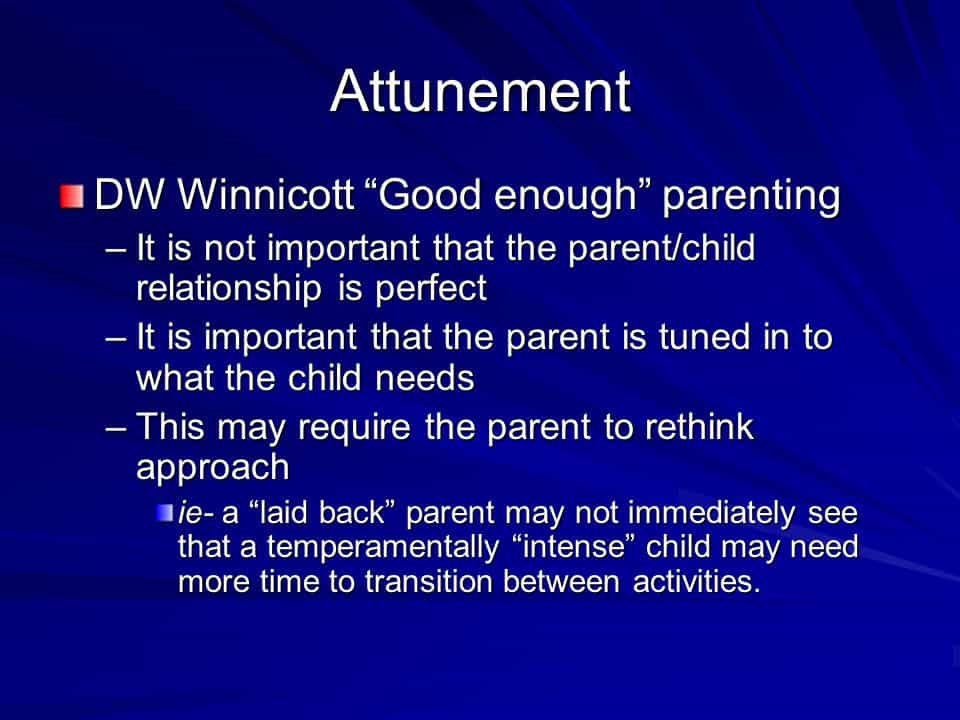
Day three: What is ‘good-enough’ parenting?
Donald Winnicott, the famous paediatrician and psychoanalyst, coined the term ‘good-enough mother’ in 1953, and his thinking went on to become pivotal in understanding child development. If we are lucky as infants we will have had good-enough parenting; our primary care-giver will have responded to our needs and feelings, reassuring and comforting us in a fairly predictable and timely manner, and empathising with or tuning-in to our emotions. Another term for this is “empathic resonance”. If this ‘good-enough’ parenting is available to us during our early years, we stand a chance of developing the ability to manage and care for ourselves through life’s inevitable ups and downs.
If good-enough parenting is not available, or we experience a great deal of loss or trauma, we don’t learn healthy selfishness and consequently get used to putting on a mask for the world, and living to please others. Therapy can be crucial in addressing this imbalance, helping clients learn to be their own ‘good-enough’ parent and to properly honour and care for themselves. In her book, Gift from the Sea, Anne Morrow Lindbergh*, writes about the peace she found through rediscovering herself during a quiet island holiday, away from her busy life as mother to five children: “When one is a stranger to oneself then one is estranged from others too. …Only when one is connected to one’s own core is one connected to others.”
Perhaps it is only when we can consider ourselves as important that we can find peace and fulfillment? But why does it matter? Tomorrow we look at the impact of healthy selfishness on our relationships.
Author: Wendy Bramham
Editor: Briony Martin
April 2015
* Lindbergh AM, Gift from the Sea, 1955, Chatto & Windus




This Post Has 0 Comments